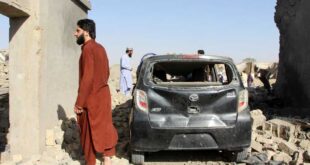Eng. Saleem Al Batayneh
Today, Jordan faces a critical crossroads. The challenges of national identity and shifting demographics have sparked growing concerns, especially as Jordan’s role within the regional landscape seems intricately linked to Israel’s strategic calculations. While Jordan has long provided refuge to waves of displaced populations, recent demographic pressures combined with a complex regional situation raise profound questions about its future political structure and identity.
Jordan and the Legacy of National Identity
With a century of statehood behind it, Jordan’s identity remains shaped by its role as a refuge for displaced groups, including Palestinians and more recently, Syrians. American journalist Jon Hoffman explores the demographic evolution in Jordan, noting that approximately 39% of Jordan’s population consists of refugees from 57 different nationalities. These demographic realities require Jordan to revisit its traditional notions of sovereignty, national unity, and the sustainable integration of diverse communities.
Hoffman raises a thought-provoking issue by suggesting that “Jordan is Palestine,” an assertion that touches on the historical and geographic fluidity between the two territories. His point evokes questions about Jordan’s national role in a region where maps and territorial definitions are subject to constant geopolitical flux, echoing a modern-day “Sykes-Picot” restructuring.
Challenges of Migration and Demographic Balance
As a longstanding haven for refugees, Jordan now faces compounded challenges as Syrian refugees and others add to its social and economic pressures. While Jordan has legitimately leveraged its hosting of refugees for international support, the scale of these demographic shifts inevitably influences its social fabric and governance models. There is a growing acknowledgment that Jordan’s population structure is rapidly changing, with the influx of refugees requiring the country to consider how best to accommodate such diversity within its political and social systems.
Identity Mines and Internal Stability Risks
“Identity mines” — issues rooted in complex national identity concerns — are a particularly sensitive topic in Jordan, where ignoring or mishandling them risks destabilizing internal unity. Politically, any moves perceived as compromising Jordan’s autonomy or diluting its national identity in favor of external settlement projects could have dramatic repercussions. Jordan would see such initiatives as a form of “political suicide,” potentially forcing changes not only in government structure but in state policy and regional stance.
Future Planning and Political Will
One of Jordan’s key limitations lies in its current lack of proactive future planning mechanisms. Without an early warning system to anticipate and mitigate demographic shifts, Jordan may be left to confront changes unexpectedly. Reflecting on its history, Jordan has often faced unforeseen regional shifts that have had a profound impact on its political landscape.
Ultimately, for Jordan to navigate its evolving demographic landscape and maintain political stability, a unified national vision focused on addressing these complex identity and demographic issues is essential. Otherwise, Jordan may face a future where both the nation’s political system and social identity could shift in unexpected and potentially destabilizing ways.
Eng. Al Batayneh is a former member of the Jordanian Parliament.
 Geostrategic Media Political Commentary, Analysis, Security, Defense
Geostrategic Media Political Commentary, Analysis, Security, Defense





